Mapping Websites Scraping - The Goldmine For Valuable Business Data
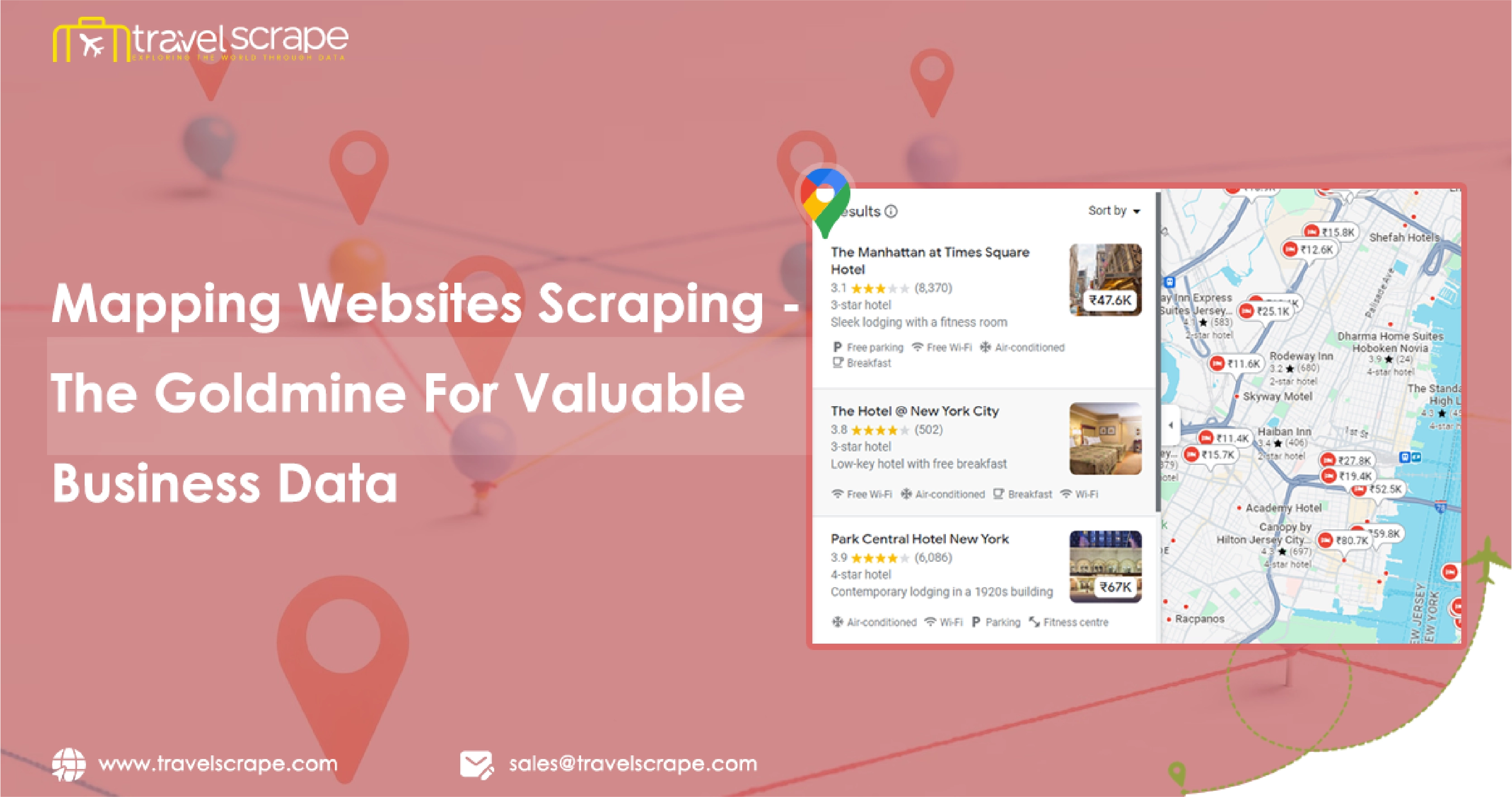
Introduction
In today's data-driven world, businesses are constantly seeking new ways to gain a competitive edge. One of the most underutilized yet incredibly powerful sources of data is mapping websites. By scraping data from online maps, businesses can unlock a treasure trove of valuable information. This detailed blog explores the benefits, techniques, and applications of mapping websites scraping, focusing on how it can transform business strategies and drive success.
Why Scrape Data From Online Maps?
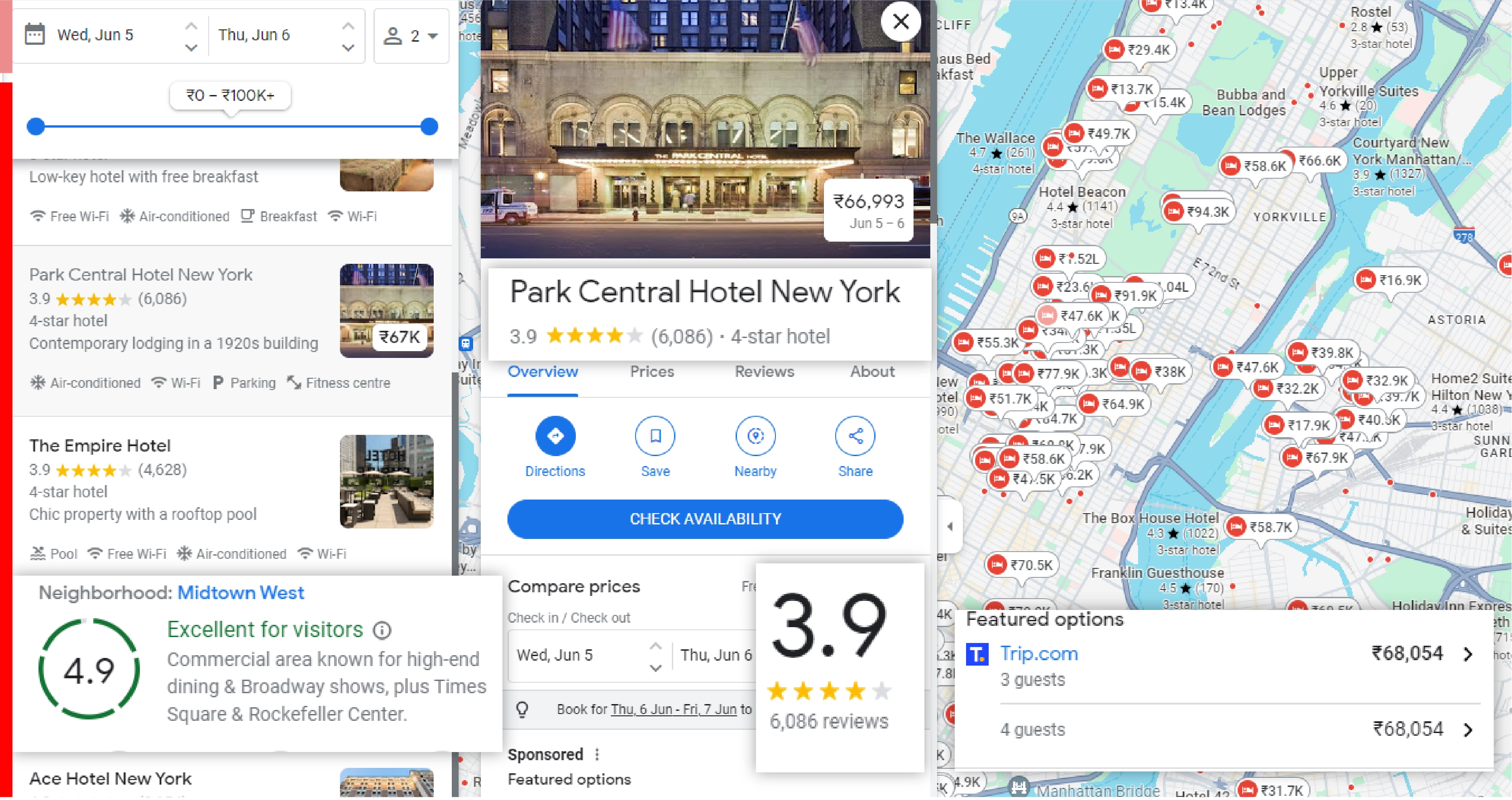
Mapping websites have revolutionized how businesses access and utilize geographical data. Platforms like Google Maps, Bing Maps, and OpenStreetMap provide comprehensive information on locations, businesses, traffic conditions, and customer reviews. By leveraging mapping websites extraction, businesses can extract valuable data to inform strategic decisions, optimize operations, and gain a competitive edge.
Enhancing Competitive Analysis
Mapping websites data collection allows businesses to conduct in-depth competitive analysis. By scraping data from online maps, companies can gather information on competitor locations, customer ratings, and reviews. This intelligence helps businesses understand the competitive landscape, identify market gaps, and adjust their strategies accordingly. For instance, a retail chain can use web scraping Google Maps to monitor competitor store locations and adapt their expansion plans to ensure they are strategically positioned.
Driving Market Research
Market research is essential for understanding customer preferences, identifying new market opportunities, and making data-driven decisions. Scraping data from online maps provides businesses with insights into customer demographics, popular areas, and travel patterns. This information is crucial for identifying high-potential markets, optimizing store locations, and tailoring marketing campaigns. For example, a restaurant chain can use mapping websites data extraction to find high-traffic areas frequented by their target demographic, ensuring they open new locations where they are most likely to succeed.
Improving Customer Insights
Understanding customer behavior and preferences is key to delivering exceptional service and fostering loyalty. Mapping websites provide a wealth of information on customer reviews, ratings, and feedback. By scraping this data, businesses can gain actionable insights into customer satisfaction and identify areas for improvement. For instance, a hotel chain can use mapping websites scraping to analyze customer reviews, enhance their services, and improve their overall guest experience.
Techniques for Mapping Websites Scraping
1. HTML Parsing
HTML parsing is a basic technique for scraping static web pages. Libraries like BeautifulSoup (Python) or Cheerio (Node.js) can be used to parse HTML documents and extract relevant information. For example, BeautifulSoup can be used to extract tourist places and Google travel data as well as reviews from Google Maps:
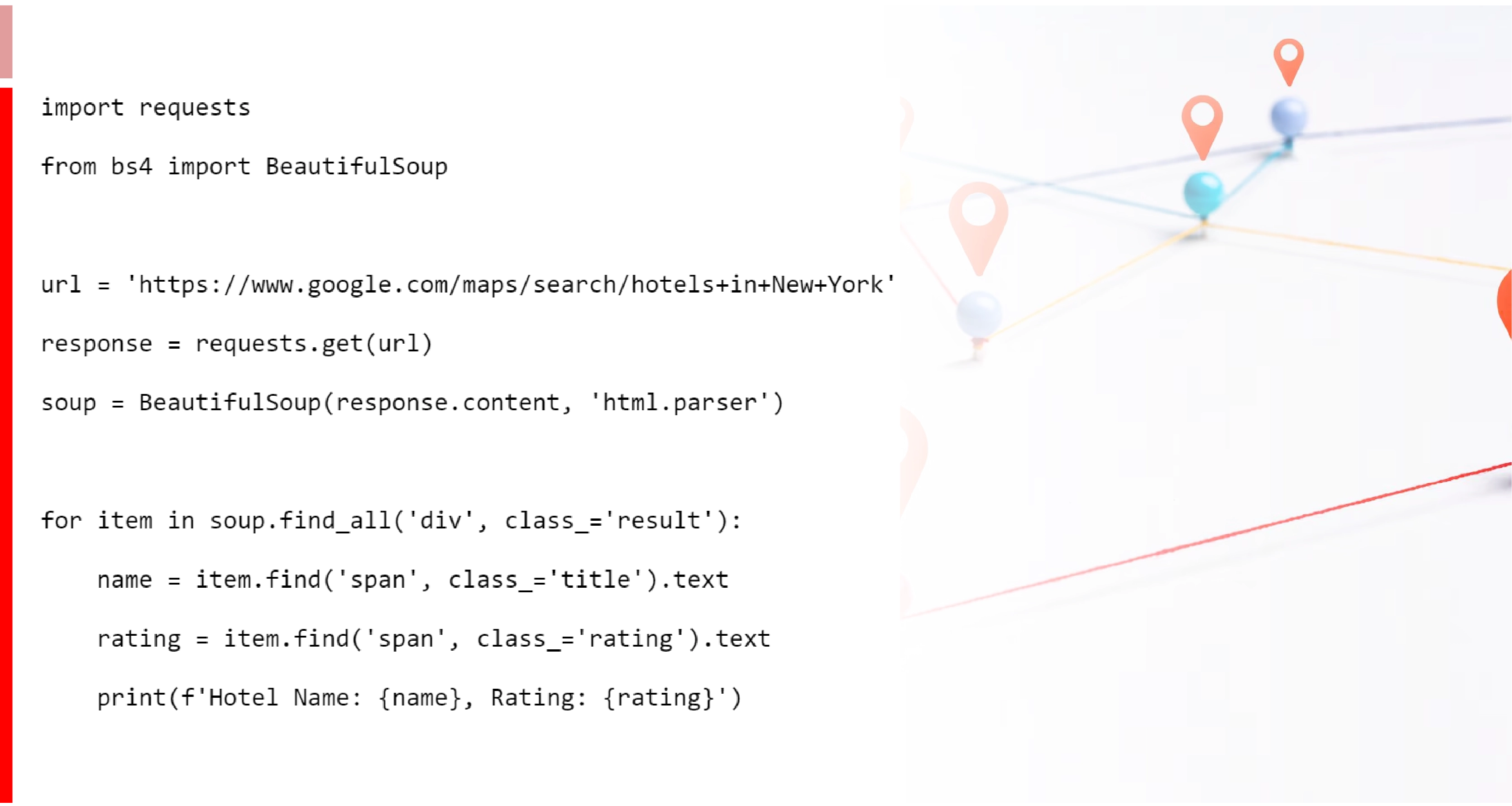
2. API Integration
Many mapping websites offer APIs that provide structured data access. Using these APIs, businesses can retrieve data directly from the source. For instance, when users extract tourist places and Google travel data it allows them to access location data, reviews, and more. API integration is often more reliable and efficient than HTML parsing, as it reduces the risk of being blocked by the website.
3. Browser Automation
For more complex web scraping travel location data tasks, browser automation tools like Selenium can be used. These tools can interact with web pages, handle dynamic content, and simulate user actions. Browser automation is particularly useful for scraping websites with JavaScript-driven content.
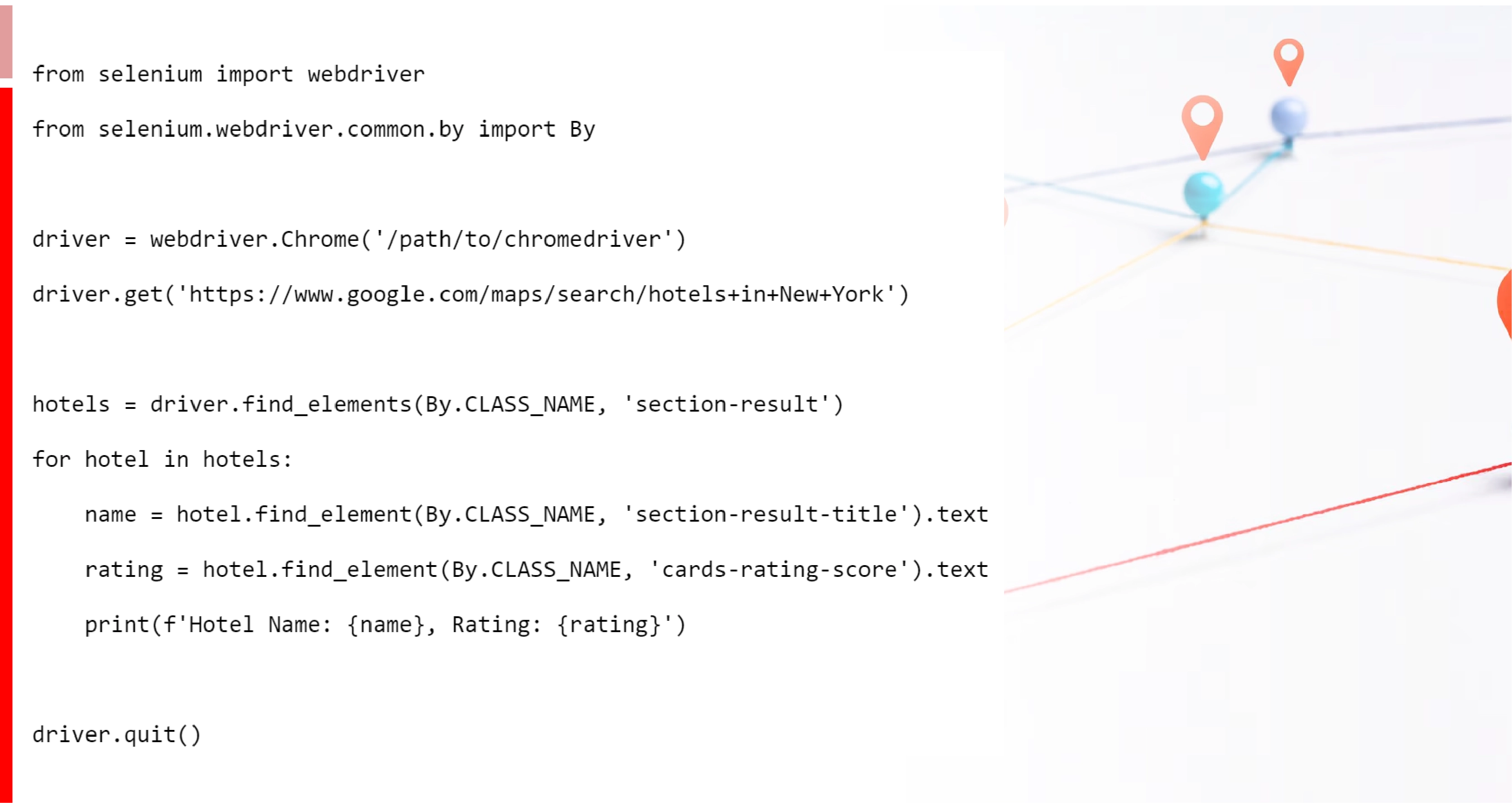
4. Data Cleaning and Storage
Once data is scraped, it needs to be cleaned and structured for analysis. This involves removing duplicates, handling missing values, and ensuring data consistency. Cleaned data can then be stored in databases or data warehouses for further analysis.
Applications of Mapping Websites Scraping
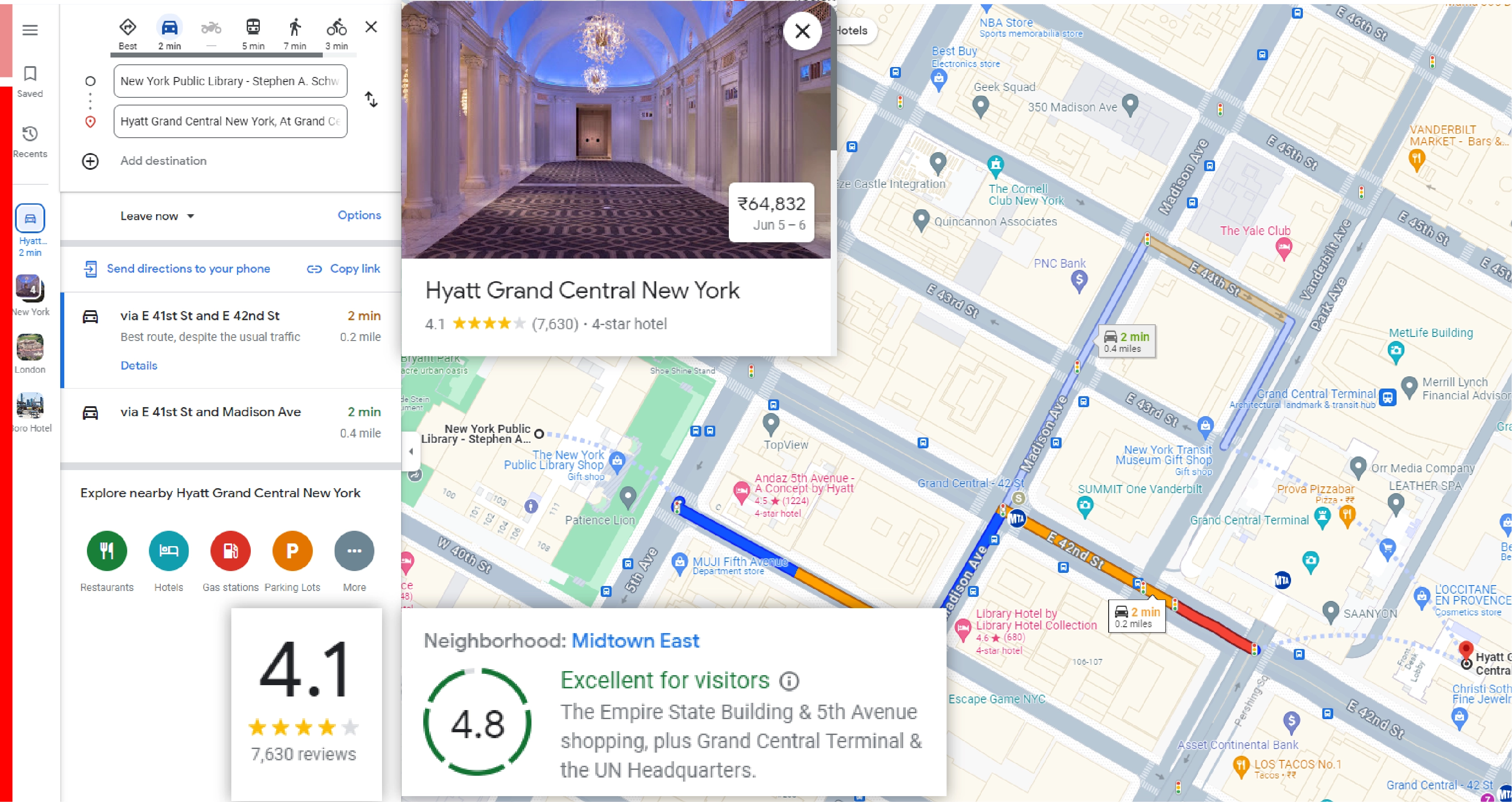
1. Retail Location Optimization
Retailers can use mapping websites data collection to identify optimal locations for new stores. By analyzing data on traffic patterns, competitor locations, and customer demographics, businesses can choose locations that maximize foot traffic and sales.
2. Marketing and Advertising
Mapping websites scraping can provide valuable insights for targeted marketing campaigns. Businesses can identify high-traffic areas and popular locations to place advertisements. Additionally, understanding customer demographics and preferences allows for more personalized marketing efforts.
3. Logistics and Supply Chain Management
For logistics and supply chain management, geographical data is crucial. By scraping mapping websites, businesses can optimize delivery routes, reduce transportation costs, and improve overall efficiency. Real-time traffic data can also help in making informed decisions about routing and scheduling.
4. Real Estate Development
Real estate developers can use mapping websites scraping to gather data on property values, neighborhood amenities, and market trends. This information is essential for making informed decisions about property investments and development projects.
5. Hospitality Industry
Hotels and travel agencies can benefit from mapping websites scraping by analyzing customer reviews and ratings. This data helps in identifying areas for improvement and enhancing customer satisfaction. Additionally, understanding competitor pricing and locations can inform pricing strategies and marketing efforts.
Conclusion
Mapping websites scraping is a powerful tool that can unlock valuable business data. By scraping data from online maps, businesses can gain insights into competitor locations, market trends, customer behavior, and more. Whether it's for retail location optimization, marketing, logistics, real estate development, or the hospitality industry, the applications of mapping websites scraping are vast and impactful.
However, it is crucial to approach web scraping ethically and responsibly. By adhering to best practices and legal guidelines, businesses can harness the power of mapping websites scraping to drive growth and success in today's competitive market.
For businesses looking to scrape mobile travel app data, partnering with experienced data extraction service providers can ensure efficient and reliable data collection from travel aggregators. These providers offer expertise in web scraping, data cleaning, and analysis, helping businesses unlock the full potential of geographical data.
Embrace the power of mapping websites data collection with Travel Scrape and stay ahead in the competitive.